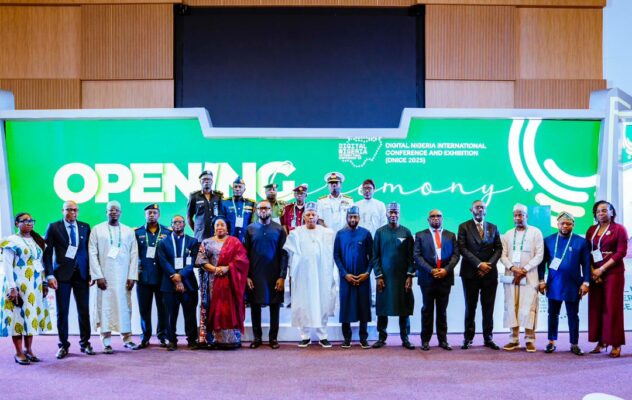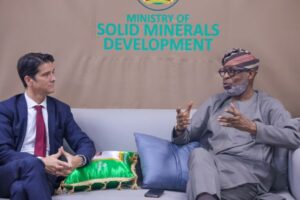The Vice President of Nigeria, Kashim Shettima, expressed that the current administration has ended the regime of volatility and unpredictability that once characterised the nation’s economy.
In a statement signed by Stanley Nkwocha, Senior Special Assistant to the Vice President on Media and Communications, Shettima credited the ongoing reforms of President Bola Ahmed Tinubu’s administration for restoring stability and investor confidence.
According to the statement, Shettima spoke yesterday in Abuja at the opening of the Digital Nigeria International Conference and Exhibition.
The Vice President noted that the current administration has been compelled to take bold decisions in response to global economic uncertainties marked by “shocks, shifting alliances, and the rapid displacement of traditional jobs by emerging technologies”.
According to him, the reforms are yielding results, including the recent upgrades by global rating agencies, as indicators of the country’s improving economic track.
“What this administration has achieved is to end the regimes of volatility and unpredictability that once defined our economy. The phase before us now is to ensure that these macroeconomic gains trickle down to the people—from the kiosks of neighbourhood traders to the boardrooms of multinational corporations.”
According to him, the government’s approach has been shaped by the recognition that “we can no longer apply 20th-century solutions to 21st-century problems”.
The Vice President stated that the conference’s theme: Innovation for a Sustainable Digital Future: Accelerating Growth, Inclusion, and Global Competitiveness, aligned with President Tinubu’s economic reform agenda.
The Vice President said Nigeria’s long-term stability hinges on digital transformation, insisting that the time has come to prioritise deep-tech solutions that address foundational challenges in agriculture, healthcare, logistics, and governance.
“What this Administration has achieved is to end the regimes of volatility and unpredictability that once defined our economy. The phase before us now is to ensure that these macroeconomic gains trickle down to the people, from the kiosks of our neighbourhood traders to the boardrooms of our multinational corporations.
“We did what we have done because we can no longer apply 20th-century solutions to 21st-century problems,” he declared, even as he expressed delight with the conference and exhibition, saying it is an “affirmation of innovation for a sustainable digital future that accelerates growth, inclusion, and global competitiveness.”
Senator Shettima stated that it aligns perfectly with President Tinubu’s economic reform agenda because the future the administration is building “is one where the young Nigerian takes the front seat, sits at the decision-making table, and has a voice in shaping our destiny.”
The VP stated that the watchword for Nigeria’s long-term stability is digital, noting, however, that the nation must set its priorities right if it “must move beyond the ‘quick wins’ of simple apps to building deep-tech solutions that address foundational challenges in agriculture, health, logistics, and governance.
“We need a digital ecosystem that works as seamlessly in Lagos as it does in Abuja, in Port Harcourt, in Kano, in Gusau, and across every corner of our nation. The digital success we seek is one where the farmer in Bida can access real-time market data to sell his harvest at a fair price, where a young woman in Oguta can work remotely for a global company because she has connectivity and the skills to compete. That is the inclusive growth President Tinubu envisions,” he added.
The Vice President pointed out that Nigeria cannot keep lamenting its “absence at the table in the previous Industrial Revolutions” when the current digital wave has offered the nation “a redemptive opportunity to define its own “terms in the next chapter of global progress.
Also, the CEO of the Nigeria Data Protection Commission, Dr Vincent Olatunji, underscored the socio-economic promise of a rapidly expanding digital economy and urged Nigeria to position itself for global relevance.





